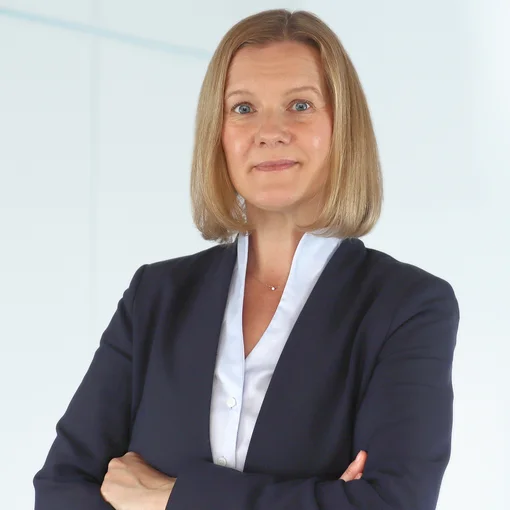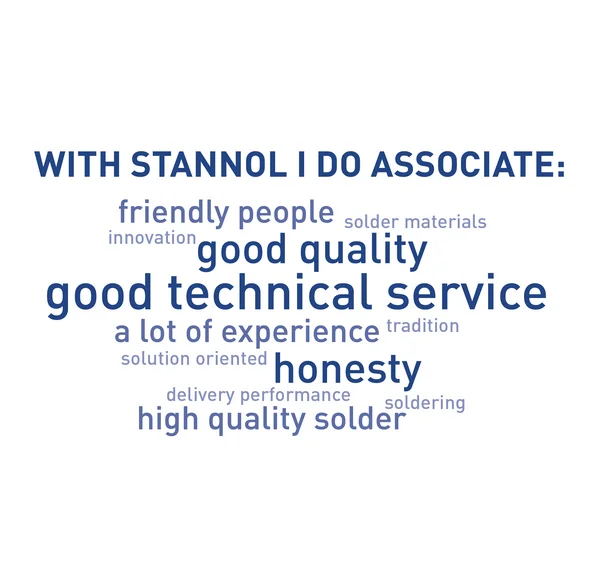"The most important thing is to stay flexible"
The Corona pandemic has presented companies around the world with major challenges: Rising prices, shortages of raw materials, incalculable delivery times and staff shortages are just some of the effects. Marco Dörr, Managing Director, and Herbert Schmidt, Technical Manager at Stannol, explain in an interview how the company has mastered the crisis so far.
How have prices developed in terms of raw material supply since the pandemic?
Herbert Schmidt: At the beginning of the Corona pandemic, prices were still relatively stable. Of course, the whole thing still had an impact. Many automotive manufacturers immediately went on short-time working – and the demand for soldering materials fell accordingly. We also registered short-time working in April and May 2020. From the end of 2020, prices rose continuously – in April 2021, the price of tin and other metals almost doubled. By spring 2022, the price had tripled. At the moment, metal prices are falling again. In addition to the price problems, there were also bottlenecks in the supply of raw materials in 2021. Some mines were closed because of the virus, for example, and supply chains were interrupted. All shipping was affected, so that metal deliveries, most of which come from either South America or Asia, were severely impaired – material that had already been purchased was stuck in ports or at sea. This situation has also slightly eased at the moment. The situation is different for raw materials for chemicals. Here there are still considerable supply bottlenecks worldwide. Many chemicals are under quota. This means that it is impossible to predict what quantities will be supplied and when. That's why we have built up our stocks of chemical raw materials as far as possible.
Marco Dörr: What's more, due to all the uncertainties such as rising logistics costs or staff shortages, it is sometimes no longer possible to conclude annual framework agreements for a fixed delivery quantity, but only for three months. I have never experienced that in this form.
How does the war in Ukraine affect Stannol?
Marco Dörr: On the customer level, the effects of the war affect us rather little. We have a small distributor in Ukraine and a larger one in Russia. Even though the Russian distributor assured us credibly that only consumer electronics are manufactured with the materials we supply, we decided to discontinue the business relationship. Since then, no more products have been going to Russia. As far as rising energy prices are concerned, we are of course affected just like everyone else.
What were the greatest difficulties at the beginning of the pandemic?
Herbert Schmidt: It was simply a situation that was new to everyone worldwide. At the beginning, it was impossible to estimate how long the whole thing would last and what effects it would ultimately have. Many of our customers were on short-time working, so it was difficult to predict at the beginning what would happen next.
Marco Dörr: Right from the start, we tried to be as proactive as possible. First, we equipped all employees with the appropriate technology very early on so that they could work from home. By doing this, we were well prepared for the first lockdown. All employees for whom this was possible then also worked from home. Looking back, I have the feeling that we were always a small step ahead and were therefore able to deal with the situation well. For example, we purchased FFP2 masks and Covid rapid tests for everyone early on, before the mask requirement or mandatory testing came into effect. In addition, we procured electronic distance holders that emit a warning tone when you fall below a certain distance from other people. We were in constant communication with managers, department heads and employees and were able to manage the situation quite well. We also tried to communicate openly and to involve our employees in all decisions. I think that was one of the reasons why the measures were supported by everyone.
Herbert Schmidt: Fortunately, we also quickly had a high vaccination rate in the company. One or two of the employees were persuaded through personal discussions. There was also the offer to be vaccinated by the company doctor.
Has anything changed for the better as a result of the pandemic?
Marco Dörr: We regularly conduct anonymous employee surveys. These surveys focus on employee satisfaction, communication within the company, technical equipment or cooperation with superiors for example. Fortunately, the results of the surveys remained stable at a high positive level even during the pandemic. We already offered the option of working from home before Covid and expanded this during the pandemic. This has become an integral part of today's working day and will be maintained in the future. I think our employees know that they are not just a number here, but that we try to meet everybody's needs.
What have we learned as a company from the pandemic?
Herbert Schmidt: In the past, people didn't think about many things too much because the processes ran as a matter of course. The pandemic then required completely new ways of looking at things – at prices, delivery times or procurement channels. Suddenly, we had to question things a lot more and constantly adapt to new circumstances. That's something we'll have to keep in mind in the future as well.
Marco Dörr: That it is important to act with as much foresight as possible and to keep reviewing the measures taken. You have to remain flexible in order to be able to adapt quickly to changing conditions. We have almost always been a little faster and stricter with our measures than the policy dictates – and have done quite well with them. The working from home situation also quickly required a rethink: What's the best way to stay in touch? Which communication channels can I still use to continue to reach customers, but also colleagues? Our application engineers, for example, quickly set up online seminars so that they could continue to inform and train our customers. This was so well received that we will continue to offer it in the future. We have also moved to making a video every three months in which the executive staff reports on news, instead of summarising everything in a long e-mail. I think it's important not only to be close to the action, but also to the people.
Author

